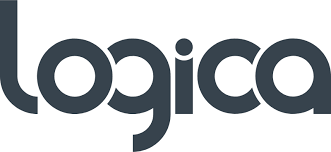Project: Corporate Vision
Business goal: To create a dynamic and collaborative environment for planning, resourcing and tracking the status and costs of IT projects.
Project partner: Atlantic Global
Award Sponsor: BMC Software
LogicaCMG provides the payments engine for a large proportion of the world's mobile phone companies. Systems conceived, written and rolled out from its Bristol-based Mobile Payments division, process two-thirds of the world's text messages.
But when LogicaCMG decided in 2003 to extend development to a second group in Bangalore, India, it soon realised that its processes needed some refinement. To coordinate the onshore and offshore efforts, it had to establish a much more dynamic and collaborative means of planning, resourcing and tracking the status and costs associated with the 200 projects it has on-going at any one time.
Historically, the Mobile Payments unit had planned and managed projects using common office tools – Gantt charts for planning, a large, single-user, colour-coded spreadsheet for resource allocation of developers and testers and a timesheet recording system. But project and programme managers, separated by 6,000 miles and five and a half hours, found themselves with an unclear and often out-of-date representation of project status.
To tackle these issues, LogicaCMG selected project portfolio management software from Atlantic Global, applying the technology initially to resource planning and timesheet management. Through Atlantic's Corporate Vision product, LogicaCMG is now able to view exactly what aspects of projects individuals are working on, where the effort is being spent and whether the right people are working in the right areas. The efficiencies were also immediately evident. Corporate Vision enabled 16% of previously unallocated costs to be charged to projects, allowing £1.3 million that was being absorbed by LogicaCMG to be assigned to client projects.
Other cost savings have been made by reducing the time employees spent planning and resourcing projects, and in producing weekly status reports. For managers, a key benefit is simply being able to judge the priority and suitability of team-members' assignments – and to juggle those priorities accordingly. By running ‘what-if' scenarios, they can map out how changes to project numbers and requirements can impact the matrix of resources and programme milestones.
Highly commended:
Colt Telecom
As part of its on-going efforts to optimise its ability to provision and bill for new communications services, Colt Telecom has undertaken a major applications integration exercise (with partner webMethods) that uses a service-oriented architecture to streamline processes. It has rationalised 13 data centres into one and brought together multiple applications on a single network.
British Gas
Although British Gas Home Service (BGHS) accounts for 25% of company revenues, its performance is impacted by customers missing appointments. The Hestia project, undertaken with the help of Vidus, equipped BGHS's 8,000 service engineers with mobile devices connected to a job scheduling system. The result is engineer productivity up by 3% and service forecasting by 30%.










